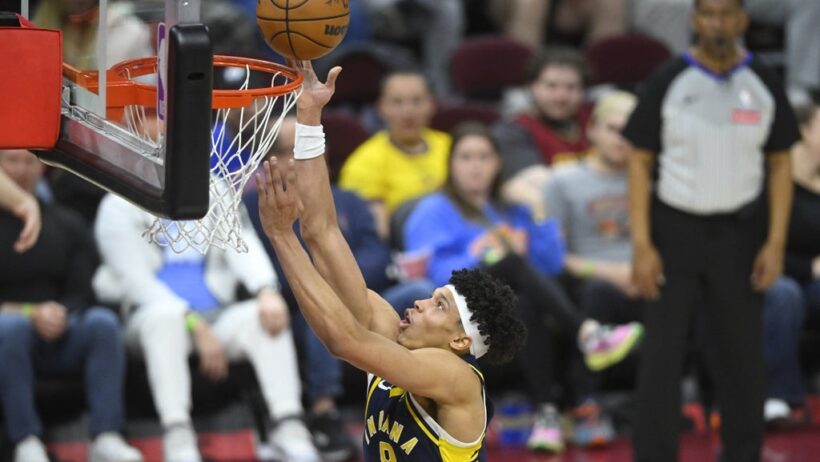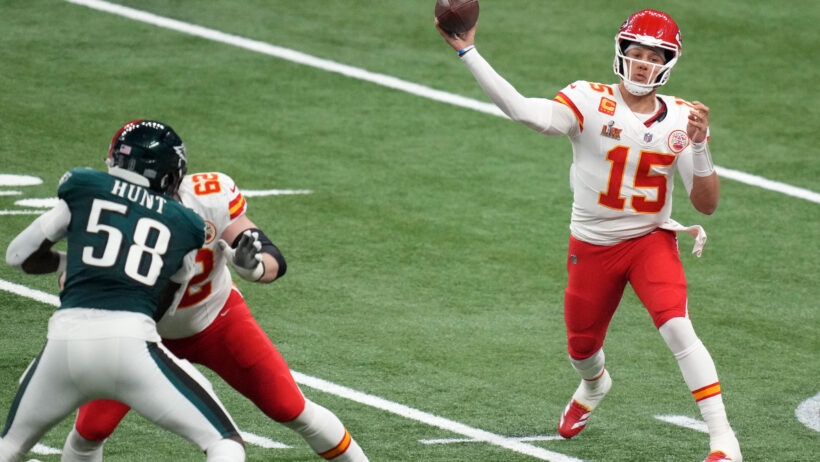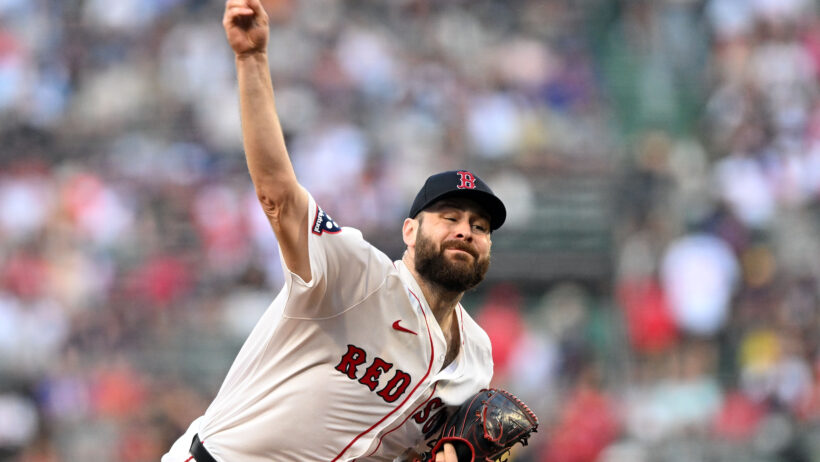What Is Dead Heat Betting?
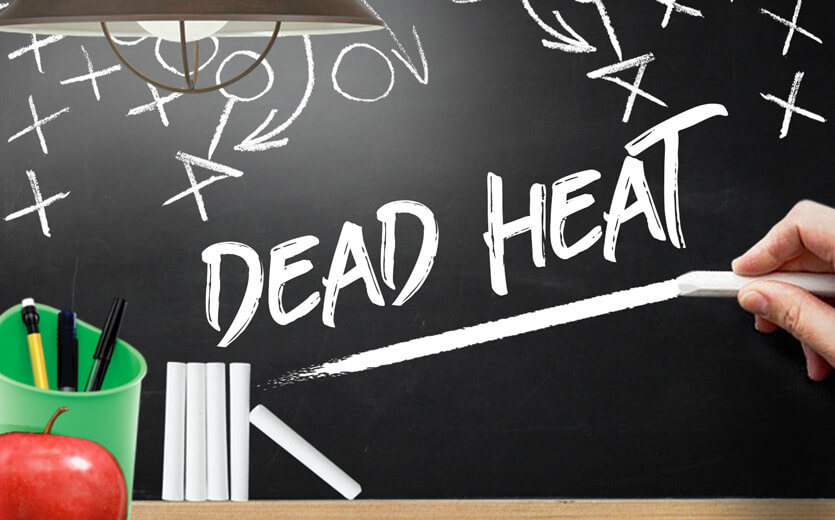
There are many times when sports betting seems like the easiest form of gaming. With sports betting, it’s just one side wins or the other, right? While that’s mostly the case, there are some rare occasions where ties (pushes) come into play. In sports betting parlance, these are called dead heats.
Dead heats are a type of tie, but it’s a little more intricate than that. If you’ve never heard the term before, you can find everything you need to know below.
Let’s examine exactly what it means and explore how dead heats factor into sports betting.
What Is a Dead Heat?
Most ties (also known as pushes) in sports betting are straightforward as they merely result in a refund to the bettor. For example, if you bet on an NFL team to win outright and the game ends in a tie, you get your money back. Pushes happen in betting on the moneyline, totals betting, bets against the spread, as well as parlays.
However, dead heats are when two or more selections have tied, and this is where things get tricky. What typically happens with your bet is the payout is divided by the number of people tied for the position. For example, a two-way tie means that you’d win half of the amount you were originally expecting to win.
Although this may seem confusing for team sports, but think of individual player sports like golf or horse racing. A dead heat in golf or horse racing occurs when multiple options tie for the same position. When multiple options are in a dead heat, how much you stand to win or whether you win at all comes into question.
Dead Heat Rules
While dead heat rules are pretty uniform across the sports betting industry in terms of how they’re determined, online sportsbooks can differ in how they pay them out.
Sometimes, they even differ in how they refer to them. DraftKings, for instance, lists it under “Dead Heat Reduction” in its house rules, while FanDuel goes with “Dead Heat Grading”.
DraftKings Dead Heat Rules
DraftKings Dead Heat Reduction rules are pretty straight forward, in that the payout in the result of two or more selections tying will result in the original odds being divided by the number of tied participants to determine the new payout.
But it’s done in decimals. So, if you bet $100 on a bet at +200 (3), and two players tie, the decimal of the odds would then get cut in half (1.5), and your $100 bet would return $150.
It is noted, however, that if a bonus bet results in a dead heat reduction that leads to the payout being less than the wager amount, it will be graded as a loss and the bonus bet will not be returned to your account.
The ESPN BET dead heat rules are calculated the same as DraftKings.
FanDuel Dead Heat Rules
FanDuel grades dead heats by dividing your original wager by the amount of ties. So if your $100 bet at +200 odds is graded as a tie, they consider $50 of your bet a loss and the other $50 as a win at +200. That makes the payout $150.
It got there differently than DraftKings, but it’s the same return.
BetMGM Dead Heat Rules
BetMGM grades dead heats the same way as FanDuel, dividing the wager by the amount of ties, and applying the original odds.
In Which Sports Does It Happen?
Dead heats mostly refer to golf and horse racing, as they are not a common occurrence across the board in all sports. For example, in sports like boxing, tennis, or even the main team sports where there is just one versus one, you’d never see a dead heat in a main result.
The reason dead heats occur primarily in golf, horse racing, and sometimes motorsports is because they each have a slew of competitors jockeying for position. In those sports, it’s possible for multiple people to finish in the same position.
Golf Dead Heat vs. NFL or NBA Dead Heat
While dead heats in golf are simply players tying for certain finishing positions outside the winner, dead heats in the NBA or NFL can occur in prop bets or specials.
If you’ve bet Anthony Edwards to finish a game with the most points, but he finished tied with Nikola Jokic at the top, that would be graded a dead heat.
In the NFL, the same could happen with markets such as most rushing yards or receiving yards in a game, or most points scored by a team in a given week. So, while they’re not as common, they are very possible.
How Often Does It Happen?
In horse racing, dead heats are a rare occurrence. A photo finish—when the zoom lenses blow up the photo—is typically as close as it gets and you’ll most likely see one horse that finished a hair ahead of the other. However, there still is the off chance of a dead heat.
In golf, dead heats occur far more often because golfers can finish with the same score. If there’s ever a tie for first place, the golfers who are in that position will go into a playoff to settle the winner. However, ties are not broken for any other position, so it’s entirely possible that 10 players could tie for fourth and another three tie for 15th and so on.
In golf, you’d almost never find a prop that lets you predict where a player will finish besides first (i.e. you can’t usually bet that a player will finish seventh, 11th, etc.), so where dead heats become relevant is for Top 5 or Top 10 props. We’ll explain further in the next section.
In any type of racing, dead heats are a rarity. In golf betting, it’s a weekly occurrence.
How Are Payouts Determined In Dead Heats?
Payouts are actually sorted out quite easily. Let’s look at the following horse racing example:
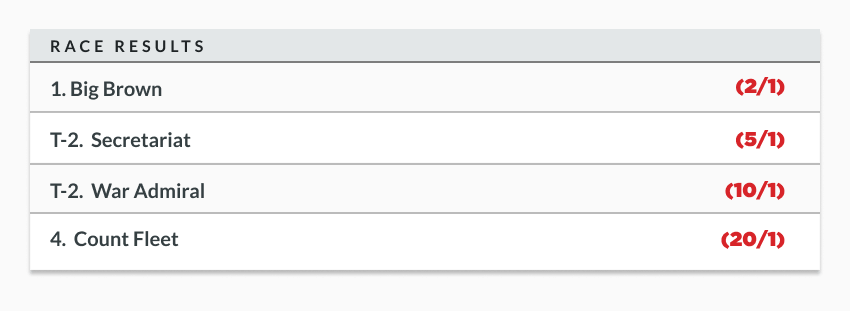
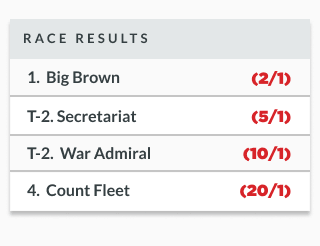
Let’s say you bet $20 on Secretariat to finish second, but there are two horses that tied for second. What happens here is your stake is cut in half (since there is a tie between two horses) and then you still get your regular odds. So a $20 bet becomes at $10 bet, but you still earn your 5/1 payout, so you would take home $50 for that bet.
Now let’s take a look at an example with golf:
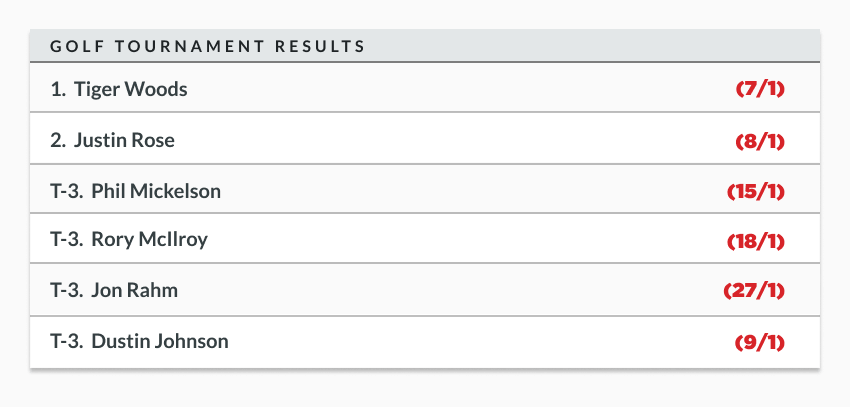
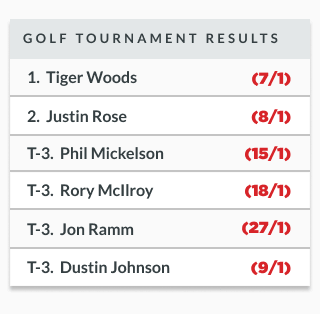
Let’s say you bet $100 on Rory McIlroy at 18/1 to finish in the Top 5. In this case, he did finish third but as you can see, he finished in a tie for third with four other players. That means technically, three of them finished in the Top 5, but a fourth finished sixth.
What happens, in this case, is that your stake would be multiplied by 3/4 since only three of the four can finish in the Top 5. That means to calculate your payout, you multiply your stake by 3/4 (75%) and then multiply that by your odds.
In this case, your stake becomes $75 (100 x 0.75) and then you multiply that by 18/1, which gives you $1350.
Do Sportsbooks Ever Use Dead Heat Rules to Their Own Advantage?
This is sometimes brought up in conversation, but in reality, it’s a myth. Sportsbooks don’t really take advantage of anything when it comes to dead heats. They have a set of rules that they stick to and will almost always payout using a system that we’ve described above.
However, we’ll take this opportunity to remind you that before you start betting on sports, you should scrutinize your sportsbooks’ terms and conditions.
Brush Up On Your Betting Knowledge Today
Although the concept can seem complex at first, dead heats are in fact fairly simple to understand. They’re just one among many subtleties you’ll have to get a firm grasp on before you become an expert sports bettor.
If you want to learn more about the basics of betting and the fundamentals of betting at online sportsbooks, check out our sports betting 101 section for a complete tour!

Evergreen Writer/Editor; Sportsbook Expert
With nearly two decades of experience in sports media, Paul Costanzo turned his professional attention to sports betting and online gambling in January of 2022. He's covered every angle of the industry since then, managing and creating content for PlayMichigan and The Sporting News, and now SBD.

